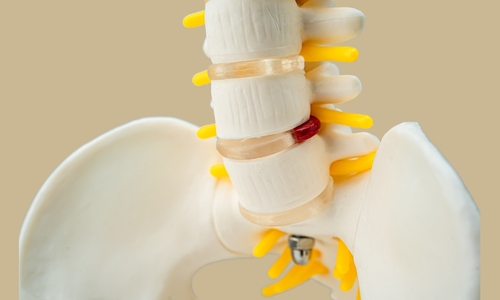
What is Ankylosing Spondylitis?
Ankylosing spondylitis (AS) is a chronic inflammatory disorder that affects the sacroiliac joints and spine, resulting in pain and stiffness. The principles of Ayurveda are holistic, and they involve reducing inflammation, relieving pain, and enhancing movement. They include Panchakarma detoxification treatments, healing herbs like Shallaki as well as Guggulu, as well as therapeutic massage with medicated oils, which can help relieve symptoms & enhance joint flexibility. For instance, dietary changes such as including anti-inflammatory foods in one's diet regime or even regularly engaging in yoga exercises to avoid any form of sedentary lifestyle can be done to achieve this goal. With the purpose of balancing the body's doshas, Ayurvedic treatment provides an organic alternative to managing ankylosing spondylitis thus improving patients' life quality.

Ayurveda’s Holistic Treatment for Ankylosing Spondylitis
Ankylosing spondylitis (AS) is a chronic inflammatory condition that affects the spine and sacroiliac joints, causing severe pain and stiffness. Ayurveda offers holistic treatments for managing AS, focusing on balancing the Vata and Kapha doshas.
Ayurveda, being a complete healing system, offers ways to manage AS effectively by use of Panchakarma detoxification, Shallaki and Guggulu herbs as well as Abhyanga oil massage. Such remedies reduce swellings and pains as well as enhance flexibility. Diet adjustments and lifestyle changes are also important in treating AS whereby consumption of anti-inflammatory foods and regular yoga practice should not be left out. This manner of approach by Ayurveda is meant to improve health overall while at the same time increasing the quality of life for ankylosing spondylitis patients.
Feel free to contact us to get the best Ayurvedic Treatment for Ankylosing Spondylitis in Kerala.
Ayurvedic Treatment
Ayur Bethaniya for Ayurvedic Treatment For Ankylosing Spondylitis in Kerala
Book NowAnkylosing spondylitis (AS) refers to a state of chronic systemic inflammation that primarily affects the spinal column, resulting in severe pain and stiffness. Ayurveda interprets AS as an abnormality in Vata and Kapha doshas that causes joint inflammation and immovability. In order to reduce pain and make walking easier, Ayurvedic remedies aim at detoxification and adjustment of these doshas.
We take a comprehensive approach to the management of AS at Ayur Bethaniya Ayurveda Hospital. Our approach comprises Panchakarma detoxification for body cleansing, herbal preparations such as Shallaki or Guggulu to decrease inflammation, Abhyanga massages for reducing pain symptoms, and betterment of flexibility. Also, we put emphasis on dietary changes plus lifestyle modifications like incorporating anti-inflammatory foods into meals and practising regular yoga for better physical health plus mental well-being.
Treatment plans are personalised after thorough individual evaluations by our seasoned Ayurvedic physicians aimed at uncovering what actually causes the condition instead of just alleviating the symptoms. This comprehensive approach not only manages stiffness plus pain but also improves general health while raising the standards of life for our patients.
Besides main treatments, meditation and breathing techniques may be used to help manage stress, which can aggravate AS symptoms. The whole person is treated rather than the disease alone so that an effective and sustainable recovery process is achievable, according to us. Contact us for the queries regarding Ayurvedic Treatment for Ankylosing Spondylitis in Kerala.
Need to know about the ayurvedic treatment for Avascular necrosis of the hip and Lumbar spondylosis


